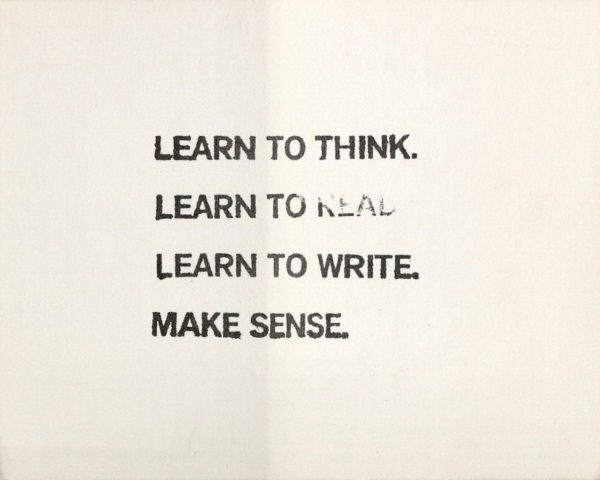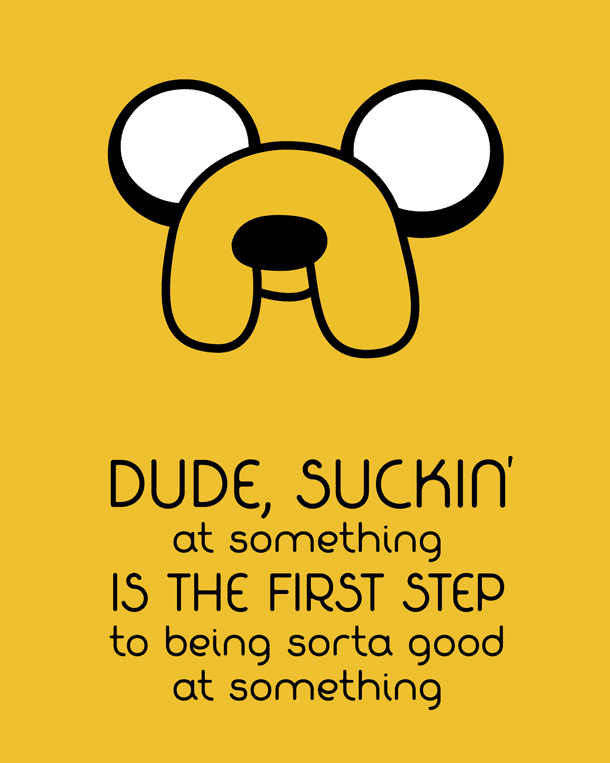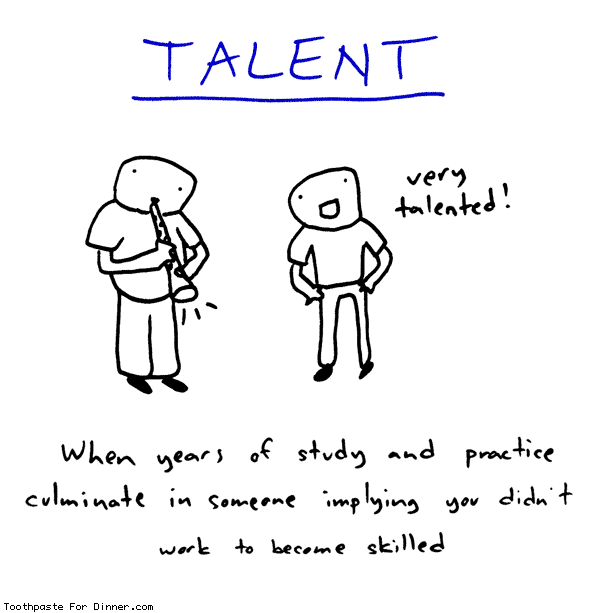
The main interest in life and work is to become someone else that you were not in the beginning.
Michel Foucault
This is a list of some of the principles that underlie my teaching of math.
It is still a messy draft document. I wanted to get my still disorganized thoughts written down. But I think it might be helpful to see my thinking, to understand the choices I am making in how I conduct classes.
Principles
Mathematics is a liberal art. It is completely about the art of reason (though not in the way it is often taught).
Mathematics is our most certain knowledge about the strange universe we find ourselves in, and it seems to be built into the structure of reality.
One of the satisfying things about mathematics is that there is never any “just because I said so”, and there are never any hidden layers of knowledge.
There is often a disagreement between people who say that every person can be included in mathematics, and can succeed in their own way; and those who say that students should be held to standards of excellence. These views are not, however, contradictory. Based on my professional knowledge of mathematics and experience in teaching, I believe:
- there is a clear standard for excellent work in mathematics, and a clear line between right versus wrong answer, between a true versus a false statement, between a valid proof versus an incomplete or invalid proof. Mathematics is definite and absolute. But,
- there are many ways to arrive at a correct answer in math, many ways to prove a theorem, many ways to understand a concept, and many disparate ways to excel. Moreover,
- any ordinary person has the capacity to excel in any mathematics that appears in the undergraduate curriculum.
Some people complain that students today are not held to standards of excellence. However, I think what these people truly miss is the ranking and competition: they want to return to the days where a very few students got As, most students got Cs, and many students got Ds and Fs, when you had a clear judgment on who was “best” and who was “bad”. They believe that, by definition, only a few people can do excellent work. In my experience, this is wrong. I believe:
- that if you and I do our jobs well, that everyone can do excellent work. That every student can get an A, and truly deserve it. I believe this is true because:
- mathematics is absolute, not relative. The standard for doing correct work, excellent work, in mathematics is NOT relative to how the rest of the class is doing. A “bell curve” is meaningless in a math class; either you are understanding the material or not, either you are solving problems correctly or not. On the other hand,
- within mathematics, there are many ways to be creative and interesting and to have a deep knowledge. The world’s best mathematicians vary a lot: some think geometrically, some algebraically; some think slowly, some quickly; some make leaps, others proceed methodically; some love the big picture, some love the little details. There are many mathematicians that the community can agree on as “great”, but there are so many different ways of being great that it makes no sense to rank them. Therefore,
- I have no interest in ranking the class, or measuring just how “good” you are. There are different ways of being good. My goal is for you all to do great work, in your own ways. In particular,
- I want to emphasize that people have many different sorts of learning curves, while arriving at excellence. Some people are quick at first and then plateau, and take a while to start again. Other people take a long time to understand at first, but then take off once they do. Some people are slow and steady the whole way through. Professional mathematicians include examples of all these types. Any of these various learning curves can lead you to thorough knowledge and creative, interesting work. Therefore,
- I am not interested in how you get there, only where you end up. There is no penalty for taking a long time to figure out an assignment, as long as you get there eventually.

I believe that replacing tests, exams, and strict weightings, with subjective, narrative assessment, makes the assessment MORE rigorous, not less. It is often possible to make it through a traditional exam without really knowing what is going on.
Anyway, my main thing is that the universe is a strange place, mathematics is beautiful and amazing, and I’d like you to know about it. I only mention my stand on the the mechanics of teaching, because people may have been discouraged by the mechanics elsewhere. Mathematics is a beautiful subject, and that is what I care about. I want people to learn about it and understand it, if they want to. However, I believe:
- you don’t HAVE to care about mathematics. It doesn’t mean anything about your intelligence or anything else. I don’t get modern dance, it doesn’t make me a bad person, it’s just that we each have different interests.
I believe in treating everyone with respect. I’m not looking to give any of you a hard time or put you on the spot. I’m not looking for you to prove yourself. I ask questions not to challenge you, but to give you interesting opportunities to think about things.
When I say you do not have to care about mathematics, though, do not get me wrong:
- I do NOT believe that there are “math brains” versus “non-math brains”. Many people believe this, but the research does not support this view, and my experience teaching does not support this view. Every person (with some extreme exceptions) can do any mathematics in a math major. I don’t know what makes some people like mathematics; that is a mystery to me. But I do know:
- most people who think they dislike mathematics actually dislike they way it was taught to them, or a bad experience they had with it. Also,
- one of the nice things about mathematics is that it can always be broken down into simpler pieces. If there is something you don’t understand, you can break it down into smaller steps, as far as you need to until you do understand it.
If we do not succeed in solving a mathematical problem, the reason frequently consists in our failure to recognize the more general standpoint from which the problem before us appears only as a single link in a chain of related problems. After finding this standpoint, not only is this problem frequently more accessible to our investigation, but at the same time we come into possession of a method which is applicable also to related problems.
David Hilbert
Second, my approach is to treat each student like a research mathematician. The level is different, but the process should be similar. I believe that:
- to find mathematics interesting, you need to see the motivation: WHY is anyone interested in this question? Where did it come from? And,
- the best way to see motivation is usually to follow the historical thread of the subject. Why were people first interested in this? How did it develop? What obstacles did they face? And, this one is important,
- the best way to appreciate the obstacles and understand the solutions is to tackle the problems yourself. To set up these problems and try to solve them, as if they were new. There are a number of reasons for this:
- if you are shown a solution, it is difficult to see what the tricky part is, what the key idea is. If you struggle with it yourself, you can see what would naturally occur to someone trying to solve it, and where they would get stuck. Then, if you end up being unable to solve it, when someone shows you the solution you can concentrate just on that key step. There is less to try to understand, less to remember. Moreover,
- you really understand the problems that you figure out yourself. They stick with you in a way that solutions shown to you never do. And,
- even though mathematics is absolute, everyone has to come to their own personal understanding of it. Your struggles will be different from everyone else’s struggles, and your solutions may be different too. Finally,
- it is just more fun to think things through on your own, than to follow a procedure someone has given you.
I believe that the principles of advanced research work in mathematics are the same as the principles of mathematics in the classroom. Some people believe that you need to do years of rote exercises before you can be allowed to do anything creative. What if you had to do years of finger exercises before you were ever allowed to touch a piano?
I believe that mathematics is interesting at this level for the same reasons it is interesting to professional mathematicians. There are several parts to this:
- a big part of being a mathematician is not just solving problems, but POSING them. What is the interesting problem to begin with? If it’s too hard, what simpler problem can we pose instead? If we solve it, what comes next? Also,
- one of the fun things is coming up with creative new ways to look at a problem, to solve a problem, to understand an idea. There isn’t just one way. And,
- one of the most satisfying things about mathematics is when you start to see how the bigger picture starts to fit together, when the pieces fall into place, and you end up at a higher point of perspective.

I believe that the methods of working for professional mathematicians also apply in the classroom. In particular,
- it is normal for work to be split up between collaborative work, where you are talking through problems with others, and individual work, where you are thinking hard on your own and writing things up. How much you balance one versus the other is a matter of personal temperament, but every person’s work involves some of both.
- problems usually can’t be solved in a matter of a minute or two. An interesting problem may stay with you for hours, or days, or weeks.
- unlike traditional textbook exercises, where the method is provided to you, and you carry it out on pre-digested problems, with a real problem a big part of the issue is to figure out how to proceed. You need to figure out what exactly you are trying to do, and if you can’t do it, to figure out what you CAN do that would bring you closer to the goal.
- rote computations can be fun, and they have an essential place in mathematics. But they should always be directed toward some larger purpose, which YOU control.
- when a problem is solved, the next question is, what else can I solve this way? What bigger pattern does this fit into? Can you make a conjecture about what will happen in other cases? Half the fun of mathematics is in figuring out the right problems.
- it is ESSENTIAL that one keep careful notes when doing these longer form problems. Doing so helps you to avoid repeatedly going down dead ends or going in circles; it provides a trail of bread crumbs. When you discover a method and come to apply it to other problems, having a clear record of what you did avoids you having to reinvent your work.
- it is just as interesting to know WHY the answer is what it is, as it is to know the answer. This is particularly true in communicating your results to others.
- your communication of your solutions to others should not just be “showing your work”: it should be a clear EXPLANATION that someone else can understand of what you did. If someone doesn’t know how to solve a problem, they should be able to learn how to do so by reading your solution.
- mathematics is not so much about numbers (though it is sometimes), but rather about logical ARGUMENTS. How do you know this is the answer? How do you know this pattern always holds up?
Mathematics is our most certain knowledge of how the universe works. It has its own history and styles and periods, like music or philosophy. It is built into the real world in surprising ways. It is much bigger than you might imagine, and full of beautiful surprise connections. Some people like it for the order, others like it for the sport of solving tough problems, others like it for the big structures and perspectives. Some like its isolation from the real world, and some are driven by applications.
Teachers played the biggest role in my life and to be a teacher is to continue a certain kind of family line for people who don’t have families. It’s my way of being a mom. No, not a mom—the crazy auntie that everybody needs.
Lynda Barry
In our acquisition of knowledge of the Universe (whether mathematical or otherwise) that which renovates the quest is nothing more nor less than complete innocence. It is in this state of complete innocence that we receive everything from the moment of our birth. Although so often the object of our contempt and of our private fears, it is always in us. It alone can unite humility with boldness so as to allow us to penetrate to the heart of things, or allow things to enter us and taken possession of us.
Alexander Grothendieck
This unique power is in no way a privilege given to “exceptional talents”—persons of incredible brain power (for example), who are better able to manipulate, with dexterity and ease, an enormous mass of data, ideas and specialized skills. Such gifts are undeniably valuable, and certainly worthy of envy from those who (like myself) were not so “endowed at birth, far beyond the ordinary.”
Yet it is not these gifts, nor the most determined ambition combined with irresistible will-power, that enables one to surmount the “invisible yet formidable boundaries” that encircle our universe. Only innocence can surmount them, which mere knowledge doesn’t even take into account, in those moments when we find ourselves able to listen to things, totally and intensely absorbed in child’s play.

